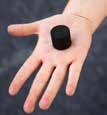A revolutionary waterless toilet powered by the sun, developed to help some of the 2.5 billion people lacking safe and sustainable sanitation around the world, will be unveiled in India shortly. Designed and built using a $7,77,000 grant from the Bill & Melinda Gates Foundation, the self-contained, waterless toilet with its innovative technology converts human waste to biochar, a highly porous charcoal.
It aims to provide an eco-friendly solution to help some of the 2.5 billion people around the world lacking safe and sustainable sanitation. The toilet has the capability of heating human waste to a high enough temperature to sterilize it and create biochar, a highly porous charcoal, said Karl Linden, project principal investigator and professor at the University of Colorado.
The biochar has a one-two punch in that it can be used to both increase crop yields and sequester carbon dioxide, a greenhouse gas. The project is part of the Gates Foundation’s “Reinvent the Toilet Challenge,” an effort to develop a next-generation toilet that can be used to disinfect liquid and solid waste while generating useful end products, both in developing and developed nations, said Linden. Biochar is a valuable material,” said Linden.
“It has good water holding capacity and it can be used in agricultural areas to hold in nutrients and bring more stability to the soils. A soil mixture containing 10 per cent biochar can hold up to 50 per cent more water and increase the availability of plant nutrients. It can also be burned as charcoal and provides energy comparable to that of commercial charcoal.










